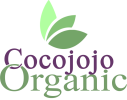- Empty cart.
- Continue Shopping
Essential Tools for Managing Your Skincare Business
Essential Tools for Managing Your Skincare Business
Running a skincare business requires efficient organization, strong customer engagement, and a streamlined workflow. From inventory management to marketing and customer service, the right tools can help you stay on top of your operations, grow your brand, and meet customer expectations. Here’s a list of essential tools to help you manage your skincare business effectively.
1. Inventory Management Software
- Why It’s Essential: Proper inventory management ensures that you have the right products in stock and prevents overselling or shortages.
- Top Tools: TradeGecko, Zoho Inventory, and Cin7 provide real-time inventory tracking, automate stock reordering, and integrate with eCommerce platforms.
- Benefits: These tools reduce manual work, improve order accuracy, and help you forecast demand, ensuring you’re never under or overstocked.
Tip: Look for inventory software that integrates with your eCommerce platform to keep everything in sync automatically.
2. E-Commerce Platform
- Why It’s Essential: An eCommerce platform is the backbone of online skincare businesses, handling everything from product listings to payments and order fulfillment.
- Top Tools: Shopify, WooCommerce, and BigCommerce offer customizable templates, easy checkout options, and secure payment gateways.
- Benefits: These platforms make it easy to manage product listings, track orders, and engage with customers on a branded website that you control.
Tip: Choose a platform with built-in SEO and mobile optimization to attract more visitors and improve their experience on your site.
3. Customer Relationship Management (CRM) Software
- Why It’s Essential: CRM software helps you build and maintain customer relationships, track interactions, and personalize marketing efforts.
- Top Tools: HubSpot, Salesforce, and Zoho CRM allow you to track customer data, monitor sales activity, and automate communication.
- Benefits: A CRM helps you understand customer preferences and habits, enabling you to offer personalized experiences that increase loyalty and drive sales.
Tip: Use your CRM to track customer purchase history and follow up with targeted offers based on their skincare needs.
4. Email Marketing Platform
- Why It’s Essential: Email marketing is one of the most effective ways to nurture leads, engage customers, and promote new products.
- Top Tools: Mailchimp, Klaviyo, and ActiveCampaign provide segmentation, automation, and analytics to send targeted emails and track performance.
- Benefits: These platforms allow you to create email campaigns tailored to customer preferences, such as product launches, skincare tips, and loyalty rewards.
Tip: Segment your email lists based on customer behavior to send personalized content, boosting engagement and conversions.
5. Social Media Management Tool
- Why It’s Essential: Social media is key for building brand awareness, sharing skincare tips, and engaging directly with customers.
- Top Tools: Hootsuite, Buffer, and Later help you schedule posts, monitor engagement, and analyze performance across multiple platforms.
- Benefits: Social media tools save time by automating posts, allowing you to plan content in advance and focus on creating consistent, valuable content.
Tip: Schedule content that promotes new products, shares skincare routines, and responds to follower questions to foster a loyal community.
6. Accounting and Finance Software
- Why It’s Essential: Keeping track of finances ensures your business remains profitable and compliant with tax regulations.
- Top Tools: QuickBooks, FreshBooks, and Xero offer invoicing, expense tracking, and financial reporting.
- Benefits: These tools help you manage cash flow, track revenue, and stay on top of your financial health, essential for growing your business.
Tip: Use financial reports to understand your profitability, identify cost-saving opportunities, and plan for future growth.
7. Project Management Tool
- Why It’s Essential: Managing various projects, from product development to marketing campaigns, can be challenging without a centralized system.
- Top Tools: Asana, Trello, and Monday.com organize tasks, set deadlines, and assign team roles.
- Benefits: Project management tools keep your team on the same page, streamline workflows, and help you meet deadlines efficiently.
Tip: Use project boards to organize tasks by category, such as product launches, marketing, and customer service, for better visibility and accountability.
8. Productivity and Time Management Tools
- Why It’s Essential: Time management tools keep you and your team productive and organized, especially with overlapping responsibilities.
- Top Tools: Toggl, Clockify, and RescueTime track time, manage tasks, and monitor productivity.
- Benefits: Time-tracking tools help you understand where time is spent, allowing you to optimize processes and increase productivity.
Tip: Review weekly time reports to identify any bottlenecks or areas where tasks can be automated.
9. Quality Control and Compliance Tools
- Why It’s Essential: Maintaining high quality is essential in skincare, where customers expect safe, effective products.
- Top Tools: MasterControl, Qualio, and ETQ manage quality control documentation, monitor compliance with industry regulations, and track quality metrics.
- Benefits: These tools help ensure your products meet safety standards, maintain consistency, and stay compliant with FDA regulations and other safety requirements.
Tip: Schedule regular quality checks and use these tools to monitor ingredient sourcing, production, and packaging standards.
10. Customer Service and Helpdesk Software
- Why It’s Essential: Customer service software allows you to quickly address customer questions, concerns, and support requests.
- Top Tools: Zendesk, Freshdesk, and Help Scout offer ticketing systems, live chat, and knowledge bases.
- Benefits: Good customer service tools keep all communication in one place, helping you respond promptly and professionally, improving customer satisfaction and loyalty.
Tip: Use these tools to track recurring customer questions or issues, so you can make proactive improvements to your products or website.
11. Packaging and Design Tools
- Why It’s Essential: Packaging and design are crucial for creating a memorable brand experience, especially in the skincare industry.
- Top Tools: Canva, Adobe Spark, and VistaCreate allow you to design product labels, social media posts, and other branded visuals easily.
- Benefits: These tools make it easy to design eye-catching packaging and marketing materials that resonate with your target audience.
Tip: Maintain consistency in your brand visuals across all packaging, website, and social media content to strengthen brand recognition.
12. Data Analytics and Reporting Tools
- Why It’s Essential: Understanding customer behavior, sales trends, and marketing performance is key to informed decision-making.
- Top Tools: Google Analytics, Tableau, and Mixpanel provide insights into website traffic, customer demographics, and product performance.
- Benefits: Data analytics helps you see what’s working and where to improve, supporting growth and profitability.
Tip: Regularly review reports to adjust marketing strategies, optimize product listings, and target key customer segments more effectively.
13. Product Formulation and Ingredient Tracking Tools
- Why It’s Essential: Ingredient tracking is essential in skincare, where quality, consistency, and compliance with regulations are paramount.
- Top Tools: Cosmetri, Formulator Software, and Perenso help track formulations, manage ingredient suppliers, and ensure compliance with cosmetic standards.
- Benefits: These tools provide insights into ingredient sourcing, formulation consistency, and regulatory compliance, helping you deliver safe, high-quality products.
Tip: Keep detailed records of your formulations and batch testing to streamline quality control and maintain consistency in your products.
Benefits of Using Essential Tools for Skincare Business Management
- Streamlines Operations: Automating tasks saves time, allowing you to focus on product quality and customer relationships.
- Improves Customer Experience: Effective CRM and customer service tools enhance customer satisfaction, creating a loyal customer base.
- Boosts Profitability: Tracking inventory, managing finances, and analyzing data help reduce costs and improve profit margins.
- Ensures Quality Control: Compliance and quality management tools maintain consistent product standards, crucial for building trust in the skincare industry.
Conclusion: Choosing the Right Tools for Your Skincare Business
Running a successful skincare business requires more than just great products; it demands efficient operations, strong customer engagement, and a commitment to quality. By using the right tools, you can streamline processes, meet regulatory standards, and create a memorable brand experience. Invest in tools that align with your goals, and you’ll set your skincare business up for long-term success.
Interested in creating your own product line? Explore our private labeling options and bring your brand vision to life. Fill out our Form to get started.
Discover more about our services by visiting our website.

